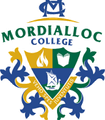Literacy Update

Dear Families, Students and Community Members,
As we welcome you all back to school and move away from our screens and back to classroom teaching and learning, it is worth taking a moment to think about the day to day things we can do to support literacy. While Mordialloc College has been proud of our curriculum provision across this time and the fantastic community and family response to the challenges we’ve faced, it is worth acknowledging that sometimes literacy can suffer as a result of too much time spent online. As always, technology offers some fantastic opportunities for students and in some ways can really enhance literacy by offering tailored learning, but it should be used in moderation where possible, particularly after such a sustained period of online learning.
Here are some of the known issues that can arise and some simple things we can do to try to overcome them:
- The Problem: When children read on a screen, research has shown that they are more prone to scanning and doing only shallow reading. Some researchers speculate that this is the result of the way we read on screens, looking for links and scanning for the next website to go to, and the result is limited thinking and poor retention. A Possible Solution: Now is the time to take ourselves to the local library or a bookshop to choose a great book. Also, reading together with your child for just ten minutes each night has been shown to have an incredibly positive impact on their literacy development. Building recreational reading routines into your home life has a confirmed effect on academic attainment across all subject areas.
- The Problem: Reading on a screen can also result in young people being drawn into reading material that is inaccurate or misleading. A Possible Solution: Now is the time to be discussing what your children have been reading and exploring their values and beliefs about the world to ensure that they are developing emotional resilience, critical thinking skills and a mature and long term perspective of their own attitudes. At school, across all subject areas, we discuss and explore a wide range of challenging issues in order to help inculcate these skills in the next generation.
- The Problem: Research has also shown that using word processing software like Google Docs and Microsoft Office too often can result in a decline in spelling, sentence structure and grammatical accuracy. A Possible Solution: As a school, we will be making a concerted effort to return to pen and paper over the next few weeks in order to start to re-train and sharpen writing skills. This can be reinforced at home through simple things like planning out a garden/home repair job with a pen and paper first, or writing the shopping list out together. The more time students spend training themselves how to use a pen, the more comfortable they will become with it in the long term.
Across the school, we also have a wide range of literacy support programs in action. Mordialloc College is committed to ensuring all students have the opportunity to perform to their full potential and develop their strengths. When students do face extra challenges in Literacy there are a number of options in place to further support them and a friendly and supportive team of staff to help guide their progress.
Support in Class
All teachers at Mordialloc College differentiate learning in each lesson using a wide range of strategies. If your child is experiencing particular challenges in their learning then contacting the teacher to discuss these challenges is the first step. Classrooms across Year 7 and 8 also all offer online learning programs that can provide personalised development sequences in spelling (Spellzone) alongside reading skills and word knowledge (Lexia).
Ms Pretty and Ms Capp
Ms Pretty and Ms Capp work with a number of students in Year 7 and 8, in particular focusing on supporting their reading skills development through CAFE Reading strategies. During their English lessons they work with students as individuals or in small groups, modelling and supporting students to develop research based reading strategies such as questioning, summarising, inferring and activating prior knowledge. They also support students with phonics development and word decoding strategies.
EAL TEAM
Mordialloc College has a team of teachers who work to support students for whom English is an Additional Language. These teachers assist students in a number of ways as outlined below:
- Supporting students in class by modelling and scaffolding reading, writing and numeracy activities;
- Working with teachers to differentiate and scaffold literacy and numeracy tasks;
- Providing 1-1 and small group support in order to, for example, develop students’ vocabulary, improve their reading comprehension skills and their writing ability in addition to their numeracy skills;
- Holding after school study sessions with students to support them with reading, writing and numeracy skills;
- Implementing sequenced phonics instruction in order to be able to build the crucial skills students require in order to read and write effectively;
- Providing students with numerous opportunities to build their oral language skills through immersive language experiences such as student council roles, incursions, excursions and camps.
Ms Biss
Mordialloc College was proud to announce in 2020 the appointment of Ms Biss as our on-site Speech Pathologist for working with students with specific literacy learning needs. Ms Biss works two days a week 1-1 or in small groups with students. She tests students for specific literacy challenges and then develops a program tailored to address those learning needs. Ms Biss works closely with students, parents and teachers to provide a coordinated response to support child literacy development.
Year 9 Literacy and Numeracy Intervention Elective
In Year 9 students who would like continued support with their Literacy and Numeracy development can choose this elective. The elective allows opportunities for students to further explore the concepts, language and texts that they are accessing in their Year 9 English classes. Students develop their study skills, define words and topics as well as receive feedback from the teacher on their writing skills. They are able to revisit areas of improvement, build on their knowledge and receive direct instruction on their learning goals. The Department of Education celebrated the Year 9 Literacy and Numeracy Elective in 2019 as a model example of ways to empower students towards achieving their full potential by using it as a case study for other schools.
Looking Forward
Ultimately, we hope you have had a successful return to school and are looking forward to being able to build on the successes we have all seen many students have over the last term.
Andrew McConchie
Director of Literacy Improvement

